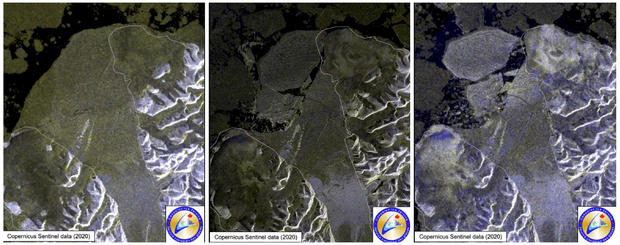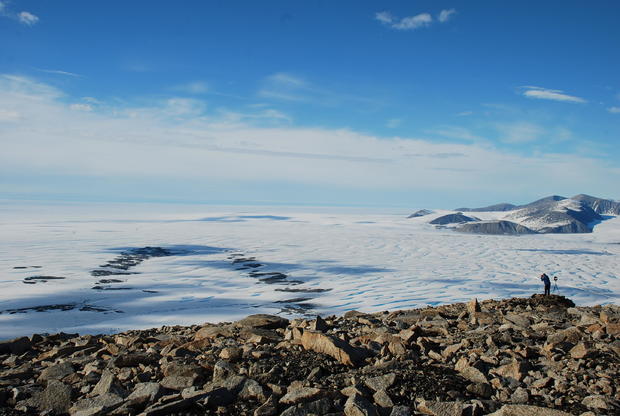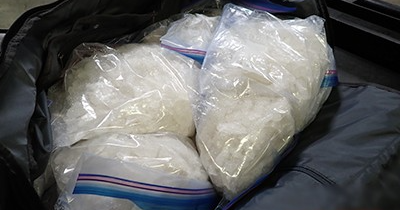Canada's last intact Arctic ice shelf has collapsed
The last fully intact ice shelf in Canada has collapsed into the Arctic Ocean. It took just a couple of days for the shelf to lose nearly half of its area, scientists said Friday, sending large ice islands out into the ocean.
The 4,000-year-old Milne Ice Shelf, located at the edge of Ellesmere Island in the northern territory of Nunavut, collapsed at the end of last month, researchers announced this week. It lost 43% of its area in just two days.
"Above normal air temperatures, offshore winds and open water in front of the ice shelf are all part of the recipe for ice shelf break up," The Canadian Ice Service said.
"This drastic decline in ice shelves is clearly related to climate change," Luke Copland, a glaciologist at the University of Ottawa, said in a statement. "This summer has been up to 5°C warmer than the average over the period from 1981 to 2010, and the region has been warming at two to three times the global rate. The Milne and other ice shelves in Canada are simply not viable any longer and will disappear in the coming decades."
A chunk of ice about 80 square kilometers in size broke off of the shelf — about 20 square kilometers larger than Manhattan in New York. Due to the pandemic, scientists were not out in the field studying the shelf when it calved, instead, observing it through satellite images.
"It is lucky that we were not on the ice shelf when this happened, our camp area and instruments were all destroyed in this event," researcher Derek Mueller of Carleton University in Ottawa said Thursday.
Most recently, Ellesmere Island saw major ice shelf break-up events in 2003, 2005, 2008, 2011 and 2012. The Milne Ice Shelf was considered less vulnerable to break-ups due to protection from the Milne Fiord, but scientists say it's sustained numerous fractures over the last 12 years, so "it was only a matter of time."
The Arctic is known to be warming at an accelerated rate, but temperatures this year have been more severe, even reaching new records in Siberia.
The high temperatures have threatened smaller ice caps that do not have the size needed to stay cold. Also this week, two 5,000-year-old ice caps in Canada completely melted, two years earlier than scientists predicted.
Arctic sea ice melt has dire consequences. Not only does melting ice sometimes lead to rising sea levels, it also poses a major threat to endangered species, including polar bears, which rely on the ice for their habitats.
"The Arctic is warming at 3 times the average of the globe because of human-caused climate change ... and as a result, the landscape of the Arctic is changing at a staggering pace," said CBS News meteorologist and climate specialist Jeff Berardelli. "We are running out time to limit the damage from climate change."





